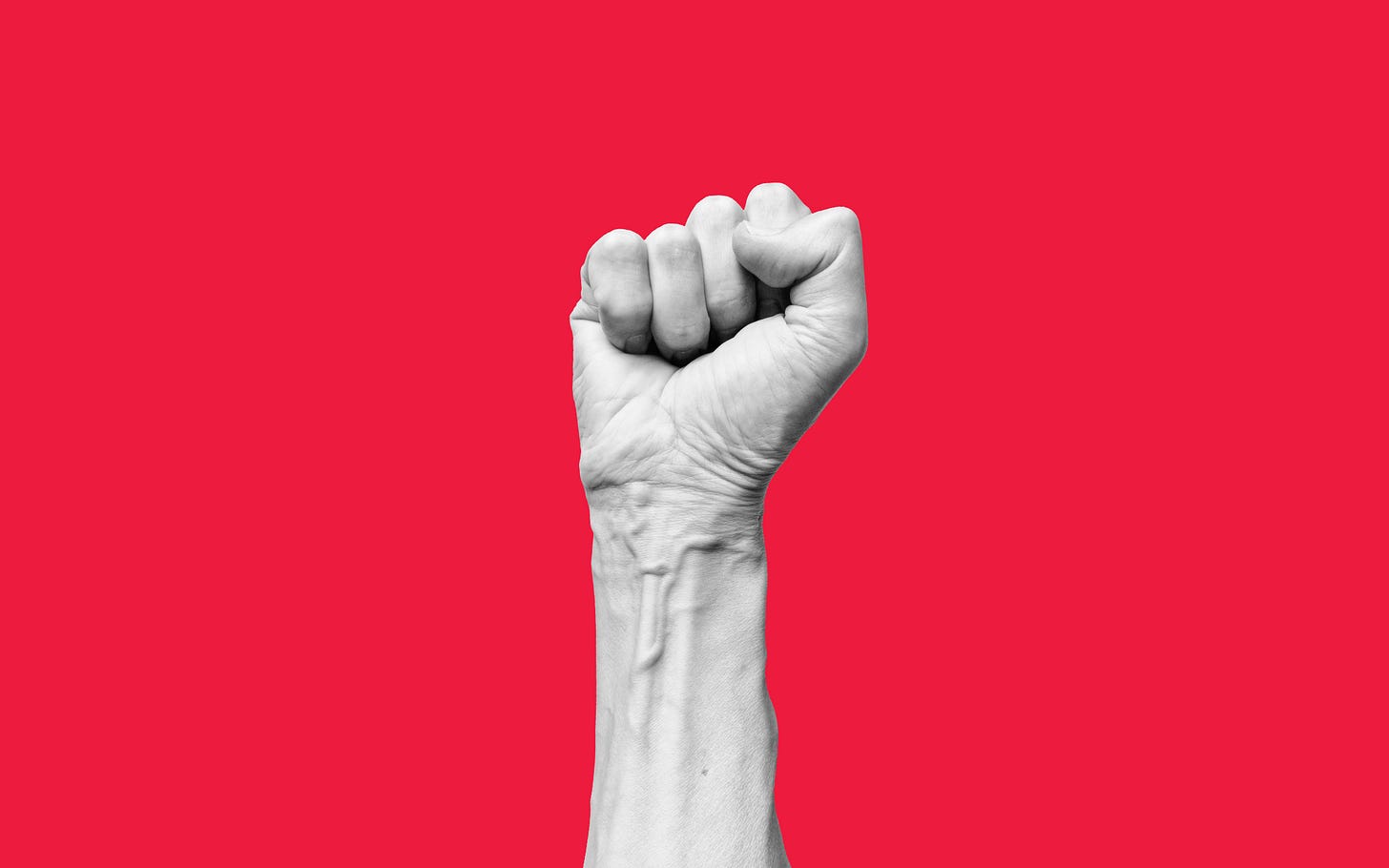At his Substack newsletter, Slow Boring, Matthew Yglesias recently wrote a thoughtful post about the prevalence of anger in our politics. In Yglesias’ view, anger is bad at both the personal and public levels—with the former leading to unhappiness and the latter inspiring people to adopt foolish positions and policy proposals.
I largely agree with Yglesias on both counts. As Stephen Colbert put it during his moving appearance on Anderson Cooper’s terrific podcast about grief, anger is less an emotion than an armor against feeling emotions. In most cases, we would be better off acknowledging the emotions from which anger seeks to protect us. As for politics, I am, like Yglesias (and Andrew Sullivan), on Team Moderate, which means I think the political system works best when people try to keep their cool and craft evidence-based arguments, while also responding to those on the other side of policy disagreements with good-faith efforts at engagement (which means a minimum of indignation-fueled invective and hyperbole).
Yet I also think there’s more to be said about the ambivalent place of anger in politics—both in general and in our present moment in particular. While anger nearly always obstructs individual flourishing and philosophical thinking, it can never be expunged entirely from political life.
Thumos and Politics
To speak for a moment in quasi-metaphysical terms, anger is politically important because it can have two very different, but equally consequential, influences on the motion of (human) bodies.
Here I’m following Plato, who defines anger (or spiritedness—thumos) as a form of “love of one’s own”—the part of us that rises up in instinctive self-defense against an external attack. But this instinct isn’t limited to our own selves. It radiates outward in concentric circles to those around us: Our families, our neighbors, and ultimately to the political community as a whole, with which we can come to identify as an extension of ourselves.
When our political community is attacked, we will be inclined to rise up in angry defense of it, just as we will angrily defend ourselves and our families to the death, if we have to, in order to prevent an assailant from harming us. The phrase “to the death” points to one of anger’s central paradoxes: Our self-love leads us to angrily defend ourselves when attacked even when the act of defense could be more likely to lead to our own demise than, say, running away from the assailant in an act of cowardice. We not only want to survive an attack. We want to prevail against or withstand an attack, even when (or perhaps especially when) it requires great acts of courage that risk culminating in death. The prospect of achieving glory can transform an angry defense of oneself into an eager embrace of self-sacrifice.
The political community needs to inculcate this sense of attachment and the instinctual defensive anger that follows from it in order to prevent the community from being overrun by external aggressors. To return to the quasi-metaphysical point toward which I gestured above, anger can inspire bodies to stand their ground in prideful self-defense, which is an essential component of politics.
But anger can also inspire forward motion of those bodies when it is combined with ideas and arguments through the medium of speech (logos). We can see this happening in Thucydides’ History of the Peloponnesian War when Pericles uses rhetoric about the idea of Athenian greatness and grandeur, and righteous anger about its rivals for power, to stoke the imperial ambitions of the city’s citizens. There’s a similar connection between America’s tendency to use noble rhetoric about democracy and human rights to justify a foreign policy that often involves the projection of military power far beyond our own borders. Righteous anger at the unjust actions of distant governments and states is a crucial component of jump-starting and sustaining such actions.
Enemies Foreign and Domestic
Such considerations help to explain why anger is a necessary element of politics, at least when it comes to international affairs. But what explains its growing role in America’s domestic politics in recent years? I agree with Yglesias that our politics are becoming angrier, and that this is a bad thing. But why is it happening?
Keep reading with a 7-day free trial
Subscribe to Notes from the Middleground to keep reading this post and get 7 days of free access to the full post archives.



